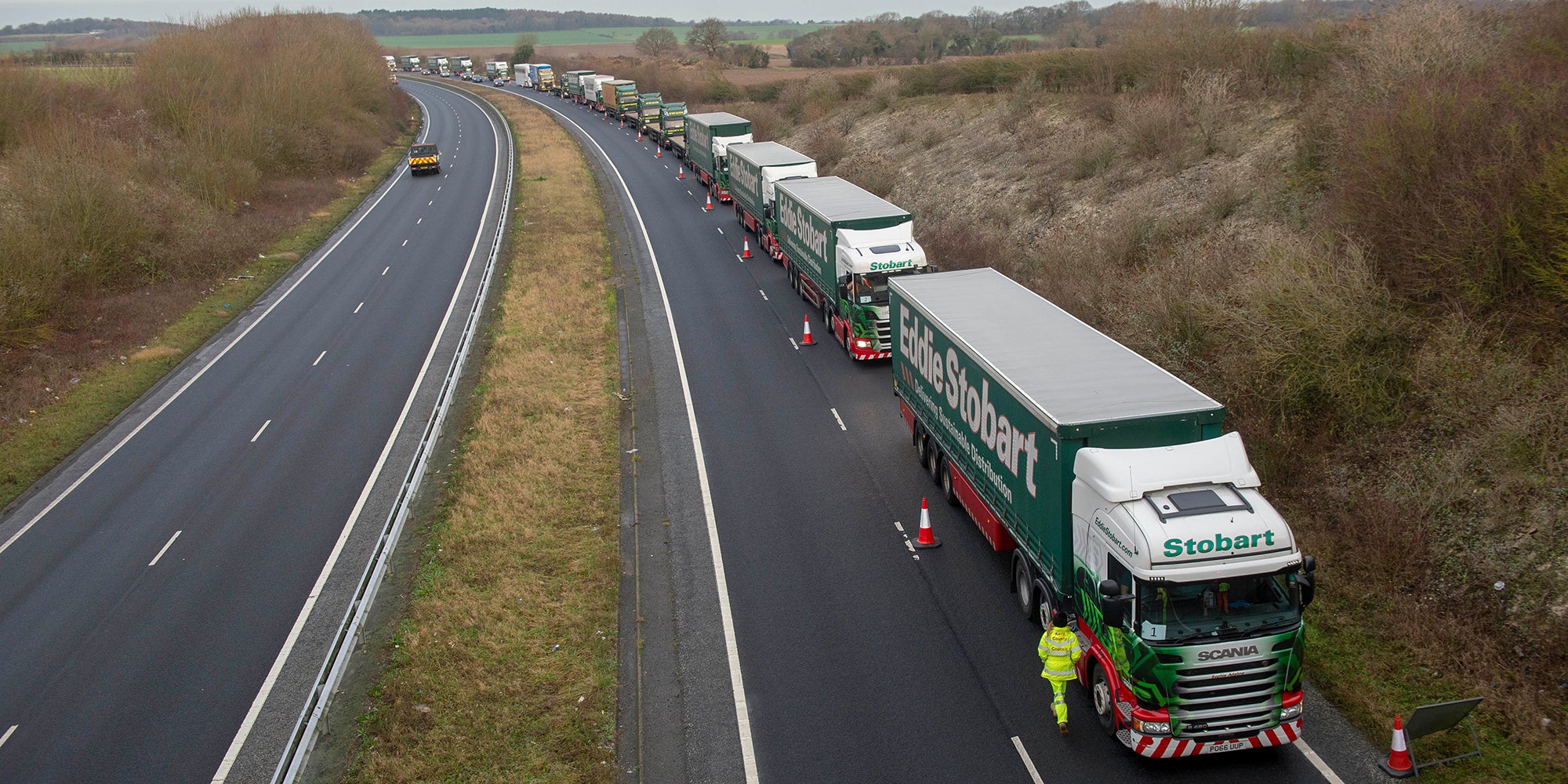The message from business is clear: No deal is not a ‘good’ outcome
With businesses struggling to survive the pandemic they’ve had no chance to get ready for the no-deal Brexit being proposed. Britain is far weaker economically than the last time the government made the threat, says James Moore


As the government engages in more Brexit posturing, more Brexit threats, more Brexit brinkmanship, out in the real economy businesses are barely coping with Covid-19.
They look at the government’s fondness for no deal with horror. They should be preparing for it but many are fighting for their lives in the midst of a deep, pandemic-created recession. They have little choice but the focus on survival in the present. The future is another country.
What? They might screw us all over by putting a wall up at the border? They’re going to land us with a sea of paperwork and skewer our exports with brutal tariffs? We probably need to worry about that. But first let’s secure the financing we need from the bank, manage our furloughed employees, sort out which of them we’re going to need going forward and which we’re going to have to lay off. Then let’s check the weekly figures. Christ. They don’t look too good. How long do we have until that last loan gets called in?
The government sought to ramp up firms’ preparedness the last time it decided it would be a good idea to threaten to hit Britain over the head.
It ran a ruinously expensive, and ultimately pointless, ad campaign to that end, urging firms and the rest of the us to “Get Ready for Brexit”.
An underreported fact is that a substantial number of businesses failed to heed it. This wasn’t driven by the sort of cavalier approach to the future adopted by Boris Johnson. It was a function of harsh necessity. The smaller ones simply didn’t have the resources to undertake the sort of preparations their larger cousins were enacting. So they opted to cross their fingers and hope it would turn out all right. As history records, a deal was ultimately done, leading to the transition period Britain is currently in.
A disturbingly large number of firms remain unprepared for its end even assuming a good outcome.
Back in June the Institute of Directors conducted ta survey of 978 company directors. The results bear that out. Less than a quarter of firms said their organisations were fully prepared for the end of the transition, almost a third said they would only adjust once the changes that will follow were clear. Some 14 per cent said they couldn’t focus on Brexit at all because of the virus.
What this underlines is that there will be significant economic disruption from Brexit in the new year and it will crash into what’s already been created by the virus, even if Johnson and chums pull something out of the fire at the death.
The fact that the government insists that no deal will a “good” outcome against the backdrop of Covid-19 shows just how far its rhetoric has diverged from reality, especially the reality on the ground for firms trying to earn a crust in the midst of this chaos.
As Mike Cherry, chair of the Federation of Small Businesses pointed out: “The economy is in a very different place today compared to the last time we were told to prepare for a no-deal outcome. Small firms don’t have the time or money to get across new bureaucracy or stockpile.”
Cherry called for “a small business-friendly deal” to be concluded “quickly” and made the case for “transition vouchers” to help firms manage the unwanted disruption they face.
According to another IoD, even among the portion of directors who favour being able to diverge from EU rules, most (71 per cent) say that getting a deal is important to the economy.
Quite what the UK government feels it stands to gain from no deal, the worst deal it’s possible to imagine, beyond a cheer from the fruit loop extremists who’ve been allowed an outsized voice in the debate for too long, is hard to discern. The notional freedom to subsidise some tech businesses that ministers like, and their mates, with money the country doesn’t have (one of the sticking points)? Really?
Reality will eventually bite and my goodness it’s going to hurt when it does.
Join our commenting forum
Join thought-provoking conversations, follow other Independent readers and see their replies
Comments


Bookmark popover
Removed from bookmarks